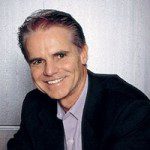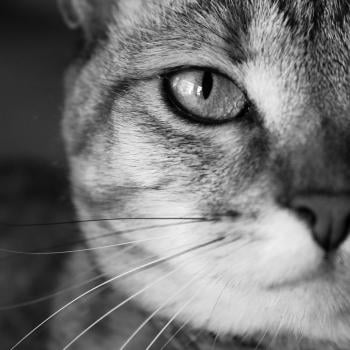 At 53, Eugene O’Kelly was on top of the world. He was Chairman and CEO at one of the Big Four accounting firms, a job he loved. He lived in a penthouse apartment in New York City, had a lakefront vacation home and a happy family life with a wife and two children.
At 53, Eugene O’Kelly was on top of the world. He was Chairman and CEO at one of the Big Four accounting firms, a job he loved. He lived in a penthouse apartment in New York City, had a lakefront vacation home and a happy family life with a wife and two children.
Then one day, he went to the doctor for what he thought was a small issue. He had been experiencing headaches and vision problems, probably just migraines he thought, caused by too much work and not enough sleep. The doctor ordered several tests and they revealed the unthinkable:
He had multiple inoperable brain tumors. He had three months to live.
So what do you do when you receive what amounts to a death sentence with no chance for appeal? O’Kelly decides to put his thoughts on paper and the result is the book Chasing Daylight. How My Forthcoming Death Transformed My Life which details his final days.
Not one to sit around, when O’Kelly hears the prognosis he sets up a game plan. He quits his job and makes a list of people he wants to see one last time. He prioritizes the list, drawing a chart with concentric circles that starts with business associates in the outer circle and moves toward inner circles comprised of his close friends and family members.
The next thing he does is a bit more surprising, but it becomes his last big mission in life. A type-A personality who has been living life at break-neck speed, O’Kelly now tries to slow everything down and live within each moment. He sets out in pursuit of something he calls the “Perfect Moment” which he explains this way:
What was a Perfect Moment? Usually it was a surprise, though sometimes I could see it unfolding. A Perfect Moment was a little gift of a moment or an hour or an afternoon. The key was you had to be open for it…it could be the rhythm of your own breathing, a beautiful poem your daughter wrote, the color of the sky.
To get in the zone for these moments, with the help of his wife Corrine he learns to meditate, something he has never done before. He spends several frustrating days not getting it, until one day it clicks. He is able to put all thoughts of his illness aside, calm his mind and “focus on something pleasing.”
He reaches the state of mindfulness, something the great American businessman/philosopher John Templeton describes as “being aware of every moment in every day”. This is vitally important to a fruitful life because as Templeton explains “what we do with time determines how we live our lives and what we achieve in our lives”.
The teacher and author Jon Kabat-Zinn has also written extensively about mindfulness and the role it plays in a well-lived life. In his words:
Mindfulness can accompany us moment by moment by moment as we journey through our lives, as they unfold through thick and thin. Each one of us can learn to rely on that awareness, on the power of mindfulness, to live our lives, as if how we live them in the only moment we are ever alive really matters.
For O’Kelly, this learned ability to live in the moment allows him to milk every last ounce out of life, to move toward death not with fear or anger, but with a total appreciation of the wonders and joys of life. In his final days he writes:
I marveled at how many Perfect Moments I was having now. I was getting better at it. It was beautiful. And as much as I had loved the hustle and bustle of my previous life, I couldn’t help but think on how rare such moments had been, and how plentiful they were now.
O’Kelly tries to put into words something that is hard to capture—the state-of-mind of being fully aware and involved in each and every moment, where all thoughts of the past and future fall away. He describes this state like this:
Time retreated. Time stood still. I was no longer aware of having an experience, the experience itself had taken over. It was not me, it was the thing. The reward was just in being there, witness to it, but not entirely there. It was as if I had become consciousness.
Sadly, the prognosis for O’Kelly proves true for he lives only four months after receiving the news of his imminent death. But his final days are met with grace and dignity, as well as great insights into the ultimate meaning of life. Corrine O’Kelly writes the final chapter and says:
Some may wonder why Gene wanted to reach the highest level of consciousness at the time of his death. Gene believed that by achieving such a state, he would come closest to embracing his soul, the divine spirit within all of us. What better way to bridge this world and the next than to be as close to the divine as possible. He believed that if you were in touch with the divine self, then there really was no bridge to cross.
Gene O’Kelly wrote that he actually felt blessed that he knew of the time of his death, for it gave him a chance to prepare. It was far preferable than to be taken without warning by a sudden heart attack or accident. And since most of us do not know for sure how much longer we will be on this earth, it does get you wondering:
-
Am I living a fully conscious life?
-
Am I contributing all I have to offer?
-
Am I making the most of each precious moment?












